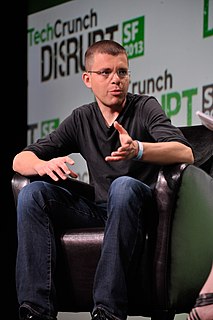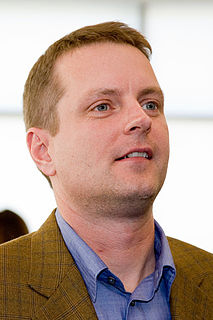A Quote by Stewart Butterfield
People sometimes forget how early Flickr came. Facebook didn't add photo sharing till a year after Flickr was acquired by Yahoo.
Related Quotes
Theres no such thing as Flickr Pro because today, with cameras as pervasive as they are, theres no such thing, really, as professional photographers when theres everything thats professional photographers. Certainly theres varying levels of skills but we didnt want to have a Flickr Pro anymore. We wanted everyone to have professional quality photo space and sharing.
There was a lot of dialogue between the people who were developing Flickr and their users to get feedback on how they wanted Flickr to develop. That interaction made the initial community very strong, and then that seed was there for new people who joined to make the community experience strong for them, too.
I remember working with a guy named Andrew Braccia at Yahoo, and Yahoo was the company that bought Flickr. Everyone on his team was hard working and reliable, did what they said they were going to do, on top of everything, and seemed to be operating at this level of productivity and effectiveness that I found difficult to manage to.
In a world where the 2 billionth photograph has been uploaded to Flickr, which looks like an Eggleston picture! How do you deal with making photographs with the tens of thousands of photographs being uploaded to Facebook every second, how do you manage that? How do you contribute to that? What's the point?
What's been important with Flickr is the community that's been there from the beginning and the serious photographers that are there creating and sharing great content. If we lose that at some point then I think we have potential issues, but so far we've been able to do a really good job of maintaining that.
A lot of things have changed since the days of Flickr. Facebook has concentrated the sociality of the Internet within its blue borders, like a Walmart siphoning off the mom-and-pop shops that formerly comprised the Internet's gathering places. Communication, in the age of mobile dominance, has become, of necessity, shorter and snack-sized.





























